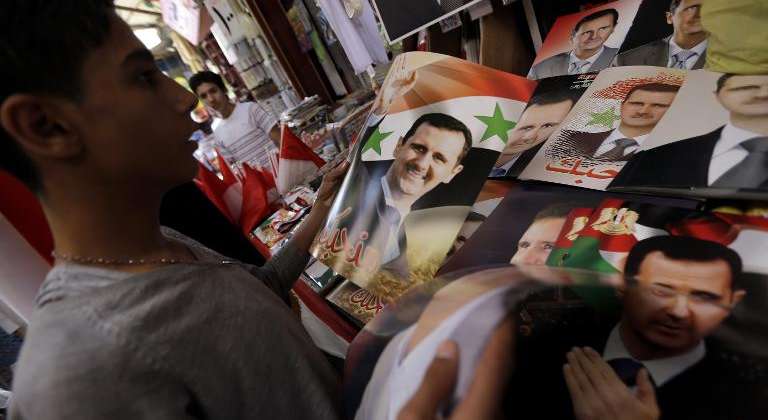
Opinion polls are predicting a replay Sunday of the shock June election which stripped the Justice and Development Party (AKP) of its majority after 13 years of single-party rule, leaving the country without a government after coalition talks failed.
Turkey goes into the election more polarised than ever on ethnic and sectarian lines, and deeply on edge after the Ankara bombings blamed on Islamic State jihadists that killed 102 people, the worst in the country’s modern history.
The AKP of President Recep Tayyip Erdogan is tipped to win between 40 and 43 percent of the vote, paving the way either for a shaky coalition that many analysts say will not last long — or yet another election.
Prime Minister Ahmet Davutoglu, whose job could be at risk if the AKP fails to secure an outright victory, said the election was a “referendum on Turkey’s future”.
“Turkey needs a strong and shrewd government at such a critical time,” he told a boisterous final campaign rally in Ankara.
“We will definitely clear Turkey of terror, fighting, violence and hostility. We will never make concessions on democracy, freedom and rights.”
– Fears of all-out war –
Another inconclusive result could however trigger further turmoil in the Muslim-majority country, with fears of a return to all-out war between Turkish security forces and Kurdistan Workers’ Party (PKK) rebels after renewed violence shattered a 2013 truce in July.
Alarm bells are also ringing about the state of democracy in the country of 78 million following a string of high-profile police raids and prosecutions against media groups and journalists considered critical of Erdogan.
The June result dashed — at least temporarily — his hopes of expanding his role into a powerful US-style executive presidency that opponents fear would mean fewer checks and balances on a man seen as increasingly autocratic.
A total of 54 million Turks are registered to vote, but observers say fatigue has set in, and the run-up to the election has been much more low-key than the frenzied campaigning ahead of the June poll.
Security remains the paramount concern after the attack on an Ankara peace rally that prosecutors say was carried out by an IS sleeper cell to disrupt Sunday’s election.
Police have rounded up scores of IS suspects in nationwide raids amid media reports that a jihadist cell could be planning a spectacular attack such as a hijacking.
Around 385,000 police and gendarmes will be on the streets for the vote.
Ankara, which is already struggling with more than two million Syrian refugees, found itself drawn directly into the quagmire across the border when it joined the US-led coalition and launched a “war on terrorism” against IS extremists as well as PKK rebels in Turkey and Iraq.
But concerns about Turkey’s domestic and foreign policies have seen it more isolated on the world stage, as relations with the EU and US cool and it loses friends in the Middle East.
– Faltering economy –
Turkey’s faltering economy is also at risk, with growth slowing sharply from the dizzy heights of five years ago and the Turkish lira plunging around 26 percent this year.
All eyes will again be on the Peoples’ Democratic Party (HDP), which made history in June when it became the first pro-Kurdish movement in parliament and gained enough seats to block an AKP majority.
But it faces accusations it is a mere front for the PKK, whose armed campaign for autonomy has killed 45,000 people since 1984.
Analysts expect the AKP to try to form a coalition with at least one other party in the event of another hung parliament, probably the secular Republican People’s Party (CHP) which came second in June.
Nationalist Movement Party (MHP) leader Devlet Bahceli ruled out a partnership with the AKP, describing Davutoglu as a “fake prime minister” working for the “autocratic” Erdogan.
But the outcome could leave Turkey without a government as it hosts world leaders, including US President Barack Obama, for the G20 summit in the Mediterranean resort of Antalya on November 15-16.



